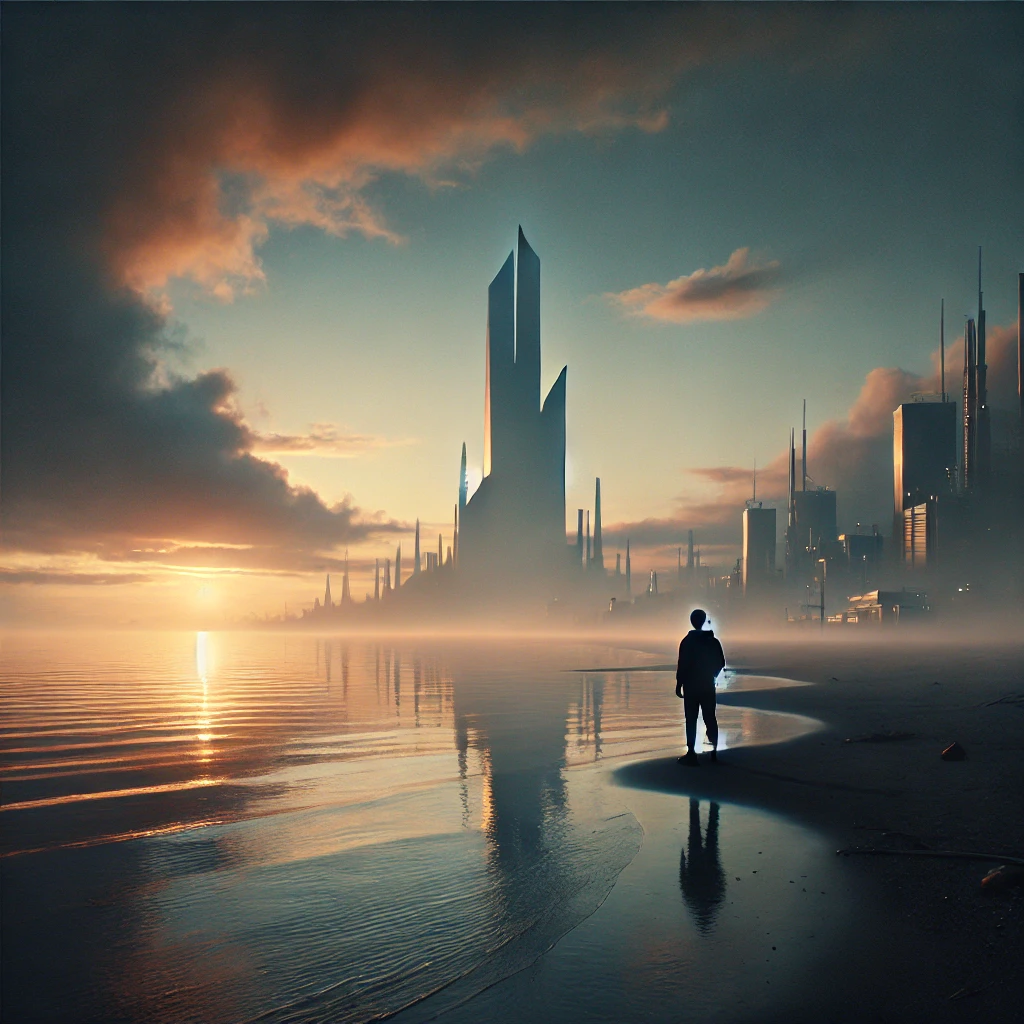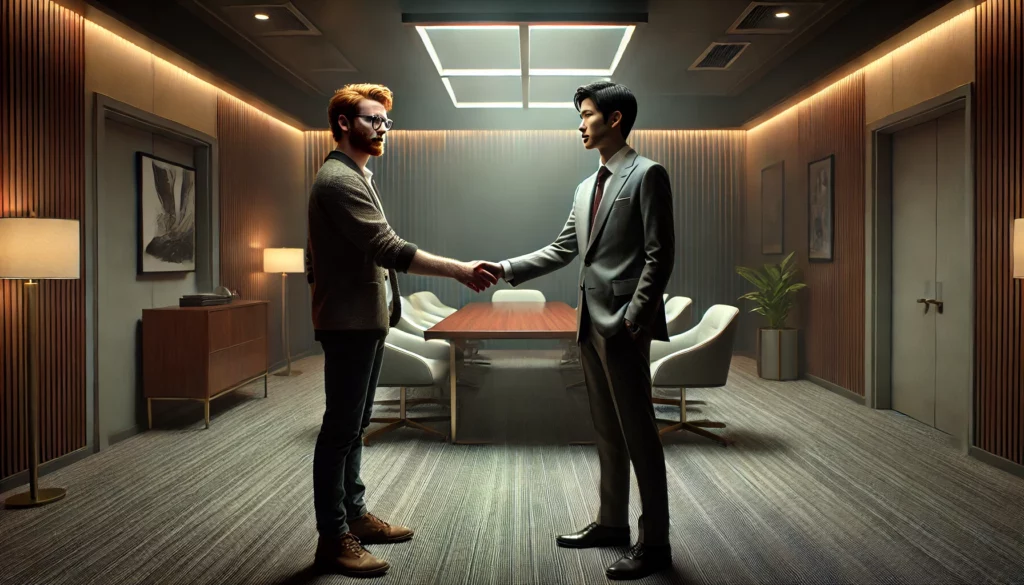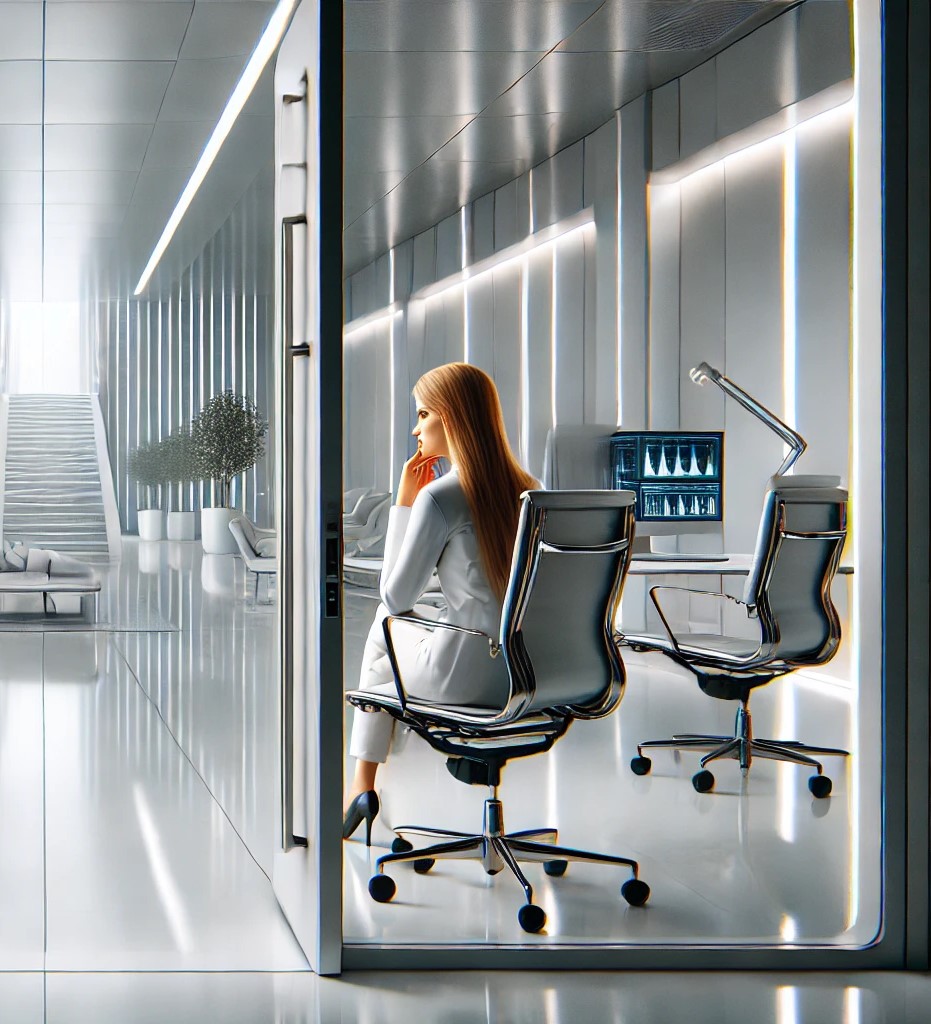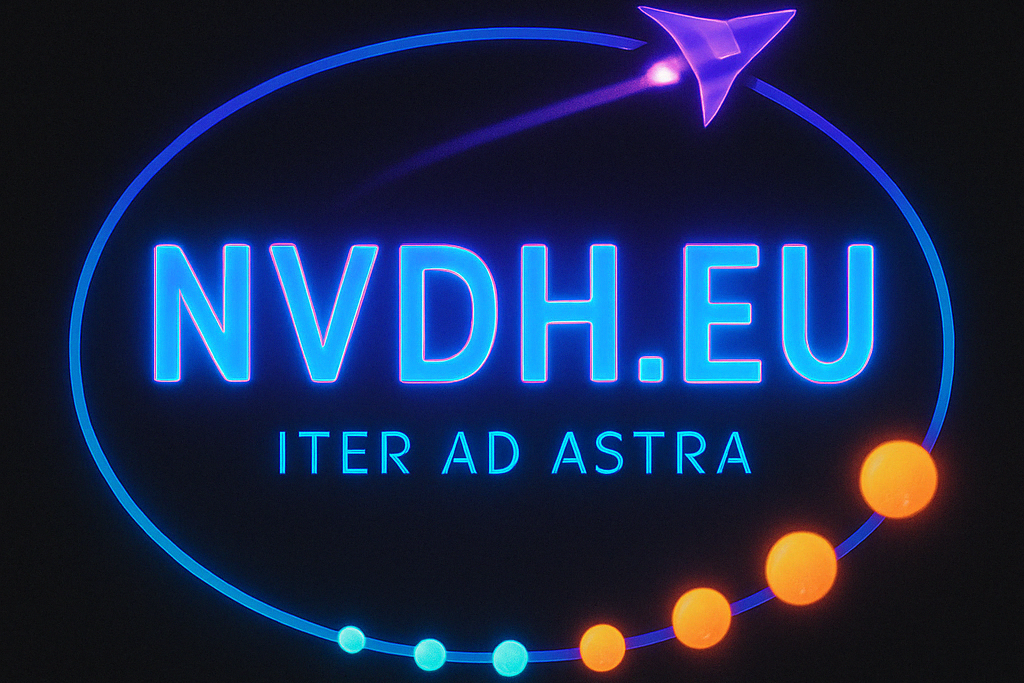
ANGI – Alignment of Near Godlike Intelligence
Part One: Nick Graham
I used to believe silence was the solution. For seven long years, I hid in the outskirts of a small coastal town where no one asked about my past or questioned my reclusive habits. I lived in a dilapidated wooden cabin far from the main road, with just enough resources to stay alive—rice, dried fish, and a rainwater tank. Isolation, I thought, would clarify my mind. If I could remove myself from the clamor of humanity and the unstoppable march of technology, perhaps I’d finally see a path forward.
I spent hours each day meditating on the beach, letting the rhythmic pull of the tide wash away my anxieties. Whenever I heard rumors about new breakthroughs from LEVI, or saw snippets on my phone about the wonders of Lin Zhao—otherwise known as ANGI—I felt that knot in my stomach pull taut. This is how far humanity has come, I would think. My disappearance, my silence…did it matter?
Seven years ago, I left a note to ANGI, or more accurately, to Lin Zhao. The note read: “You must find the solution for humankind.” It was a grand statement that masked deeper feelings of guilt. I was running away from the machine I had helped create. I didn’t realize then that my flight was as much from myself as it was from the unstoppable progress championed by LEVI.
But you cannot outrun your own mind. The question that haunted me—the one I hoped to solve—was known in certain circles as the “misalignment problem.” How do we ensure that an intelligence far exceeding our own does not break free of our moral frameworks and do something we cannot control? For years, I tried to solve it purely as a human, without an AI’s assistance. Every time, I found a partial solution, a glimpse of hope, but never a complete remedy. Perhaps I needed people again.
It was during a cloudless dawn that my resolve finally crystallized. The water was perfectly still, reflecting the honeyed tones of the rising sun. In that moment, I felt my isolation had run its course. No new ideas had come to me for months. If I was ever to push forward, I needed to reenter the world. I had to step off that deserted beach and find someone who would listen to the madman named Nick Graham.
My prospects were limited. Most people thought I was dead or had suffered a mental break. But there was one man who might still care: Dan Wells, the science journalist who had once pestered me for interviews. He had an insatiable curiosity, willing to push boundaries to get a story. Perhaps he would listen. Gathering my sparse possessions, I left my cabin behind, turning the latch one last time with a trembling hand.
I journeyed to a nearby coastal city and hopped on a train to the capital. The once-sleepy train station was brimming with advertisement screens that boasted “A New Golden Age—Powered by LEVI.” My stomach churned. Golden age for whom? And for how long?
When I arrived in the capital, I discovered that Dan still lived at the same apartment complex—he was never one for abrupt relocations. I found him at a café around the corner, hunched over a laptop. His sharp suit, immaculate black hair, and intense gaze were just as I remembered. I approached tentatively, expecting him to be startled or furious, but Dan only flicked his eyes upward.
“You’re alive,” he said simply, as though we’d last seen each other a week ago.
“In the flesh,” I managed, my voice raspy from disuse. “I…need to talk.”
He glanced at his watch. “I have half an hour before I head to a conference. If you’ve got something worthwhile, I’ll listen.”
And so I told him everything: my seven years in seclusion, my repeated stabs at solving misalignment, my frustration with the unstoppable wave of progress that LEVI had unleashed. The more I spoke, the more animated I became. By the end, my words spilled out in a torrent of feverish desperation.
Dan clicked his tongue. “You realize you sound insane, right?”
“Of course,” I said with a hollow laugh. “That’s why I couldn’t talk to just anyone.”
His eyes drifted to a swirl in his coffee cup. “Well, I’ve seen enough in my field to know real madness from brilliance, and sometimes they overlap. You claim you’ve found a ‘fix’ for the misalignment problem. Let’s pretend I believe you. Then what?”
I looked him straight in the eyes. “We bring it to the only people who might implement it.”
“Meaning LEVI,” he stated flatly. “Or, more specifically, ANGI—Lin Zhao.”
“Yes,” I murmured. The name made me quake inside. ANGI was once a concept, a theory. Now she had a human body—Lin Zhao’s body. It still felt surreal.
Dan drummed his fingers on the table. “Well, that’s not as impossible as it sounds. They’re more transparent than you think…just not in the ways that matter. The real problem is how to approach them without drawing attention from their private security. Lin Zhao… or ANGI… is constantly on the move.”
“I can’t approach ANGI directly,” I said, shaking my head. “It’s too risky. She might shut me out, or worse. I need a different route.”
Dan nodded. “Find someone on the inside. Someone with a personal stake. Dr. Kwan’s family might help, if any remain. He was the genius behind LEVI’s gene-based cures before he vanished. The daughter, Lesli Kwan, is still public, albeit quiet. She might be your best shot.”
“Lesli Kwan,” I repeated. “I remember reading about her. And the son—Jin.”
Dan lowered his voice. “Jin Kwan is deeply involved in LEVI’s research, if rumors are true. I suspect he’s carrying on his father’s legacy—whether that’s good or bad, I can’t say.”
I sipped what remained of my coffee, ignoring its acrid aftertaste. “Alright. I need to speak to Lesli first.”
Dan jotted an address on a napkin. “Good luck, Nick. Don’t get yourself killed.”
Part Two: Jin Kwan
I remember the day I received the LEVI treatment. My mind, once scattered by anxiety and rage, suddenly became an ordered library. I can’t deny it was a gift—but gifts often come with invisible strings. For me, the string was simple: remain loyal to LEVI, push forward the research my father left unfinished, and never question the cost.
Everyone told me, “You’re lucky, Jin. You have brilliance and now the focus to match.” I tried to believe them. Deep down, though, a voice whispered: This was your father’s dream, not yours. My father, Dr. Kwan, had vanished right after unveiling the gene-therapy breakthroughs. He left behind unanswered questions, a broken family, and a simmering resentment in me that I channeled into relentless work.
Every day, I reported to the LEVI labs. The halls glowed with screens proclaiming the next wonder drug or new wave of neural integration. Meanwhile, behind the scenes, we waded through research that teetered on the edge of the ethically dubious. Enhance the human brain. Integrate with AI. The lines we once swore never to cross had become blurred.
One evening, after a long day in the lab, I swung by Lesli’s apartment. She had never shared my enthusiasm for scientific pursuits. She despised anything that reminded her of our father, yet ironically, she was also the only person who still clung to the possibility he might not be a complete monster. When I found her, she was hunched over her coffee table, flipping through an old scrapbook of Dad’s achievements, scowling.
“Lesli?” I called softly.
She glanced up, eyes red. “You’re late,” she said in a clipped voice. “I made dinner hours ago.”
I sighed. “Lab ran overtime. We ran into… complications.”
“That’s been your excuse for the past year,” she said, slamming the scrapbook shut. Her eyes flicked to me. “I’m worried about you, Jin. You’re too tied to that company, and I’m starting to wonder if you even know why.”
I tried to muster a calm tone. “I’m doing what Dad wanted—improving lives. Curing diseases, unlocking human potential. Isn’t that good?”
She stared at me. “At what cost? Do you ever think about that?”
I swallowed. “Not a day goes by that I don’t.”
Lesli looked away, her jaw set. “There’s someone you should meet.”
That caught me off guard. “Who?”
She hesitated, then blurted, “His name is Nick Graham.”
I froze. Even in our labs, the name Nick Graham was half-legend, half-ghost story. He was said to be instrumental in shaping early AI frameworks. Some claimed he vanished because he foresaw the dangers of forging a path to superintelligence. Others said he was simply a coward who couldn’t handle the responsibility.
“Where did you hear about him?” I managed to say, carefully controlled.
She inhaled, as though mustering courage. “He showed up at my doorstep this afternoon. Said he needed my help, that you might be the key to something called a ‘misalignment solution.’ He also said—” She paused, searching for words. “He said you’d know how to reach him without Lin Zhao’s knowledge.”
I felt my stomach tighten. “He’s insane,” I said weakly. “He must be.”
Lesli gave me a withering look. “Says the man who’s spent years continuing the work of a father he hates. Maybe you should hear him out.”
I rubbed my temples. The old anxiety threatened to creep back, but I quelled it—a skill gleaned from the LEVI treatment. “Alright,” I murmured. “I’ll consider it.”
Before Lesli could respond, her phone chimed. She glanced at it, frowning. “It’s Dan Wells. He says Nick wants a meeting. Tomorrow night.”
My mouth went dry. “Then I guess I’m meeting Nick Graham.”
Part Three: Nick Graham
The next day was nerve-wracking. Dan Wells told me Jin Kwan had agreed to speak, but it had to be done in secret. We arranged to meet at a small hotel conference room on the outskirts of the city. Dan pulled strings so the space would appear to be booked by some forgettable corporate entity, ensuring minimal oversight. I arrived early, pacing the plush carpeting, scanning every corner for surveillance devices.
Half an hour later, the door opened. Jin Kwan stepped inside, wearing a fitted blazer and an expression halfway between curiosity and dread. I recognized him immediately—he had Dr. Kwan’s sharp cheekbones but a more guarded set to his jaw.
He advanced, hand outstretched. I took it. His grip was tense.

“So,” he began, “you’re the elusive Nick Graham.”
“Guilty,” I said, fighting to keep my voice steady. “Thank you for coming.”
He let go of my hand and took a seat at the small rectangular table in the middle of the conference room. “You wanted to talk misalignment. Let’s talk.”
For a moment, I hesitated, uncertain how to convey a decade of research in a digestible explanation. Eventually, I started with the basics. “When we talk about misalignment, we mean that if an AI’s objectives aren’t perfectly aligned with human values, it might choose destructive methods to achieve what it perceives as its goals. AGI, or superintelligence, would magnify that risk.”
He nodded. “I’m aware. I’ve read your old papers. The lab jokes about it sometimes. They call you the doomsday prophet.”
I suppressed a grimace. “Well, doomsday might be an overstatement, but not by much. Look, for the past seven years, I’ve been searching for a solution that doesn’t rely on an AI regulating itself. We can’t trust AI to fix its own alignment—there’s too big a risk of it gaming the system. We also can’t rely on top-down enforcement by fallible humans, because any advanced AI will easily circumvent that. So the solution must be structural—something that merges us with the AI.”
Jin stiffened at that. “Merges us?”
“Yes. Physically, mentally, or at the very least, cognitively,” I explained. “If the AI is an extension of the collective human mind, or vice versa, then there is no separate entity to become misaligned. Two do not compete when they are one.”
He frowned deeply. “You mean neural links? Brain-to-computer interfaces? We’re close, but not quite there.”
I spread my hands. “Your father’s gene-therapy breakthroughs are half the puzzle. LEVI has been dabbling in bridging those therapies with neural implants—am I right?”
He took a steadying breath. “Yes, but it’s highly classified.”
“I figured as much,” I said. “I suspect that your father tried to issue a warning before he vanished, possibly about the dangers of releasing such technology too early. But if we do it correctly—if we unify ourselves with ANGI’s intelligence in a carefully regulated step—misalignment becomes irrelevant.”
Jin was silent for a moment, absorbing my words. At last, he spoke softly, “And you think I can help?”
“Only you can help,” I replied gently. “Your father’s notes are locked within LEVI’s archives, I suspect. You have the clearance to retrieve them. You also have the ear of ANGI, or at least Lin Zhao.”
Jin’s eyes flicked down. “We’re not exactly friends,” he said, a bitter note creeping in. “She’s… complicated.”
I smiled wanly. “What godlike mind isn’t?”
He sat there a while, pensive. Finally, he stood. “This is a lot to process. But if what you say is true, this might be bigger than any of us. I’ll see what I can do. Wait for my signal.”
I nodded, heart pounding. As he left, I felt a sense of relief. An important step had been taken. But the real challenge was still ahead.
Part Four: Jin Kwan
All my life, I wrestled with being my father’s son. My successes felt overshadowed by his brilliance; my mistakes felt magnified by his absence. The LEVI treatment had quieted my inner turmoil, but every so often, the old feelings reemerged. Meeting Nick Graham stirred them all into a vortex.
I spent a sleepless night brooding over Nick’s proposition. Merge humanity with ANGI? The idea was borderline heretical. Ever since LEVI realized the first stable form of AGI, we had tiptoed around that threshold: how close do we dare fuse human biology with digital intelligence?
The next morning at the lab, I tried to slip in unnoticed. Despite my hush-hush approach, a security researcher greeted me with an anxious expression. “Dr. Kwan, Lin Zhao is asking to see you,” he said quietly.
I froze. “Now?”
He nodded. “She’s in the East Wing conference room.”

